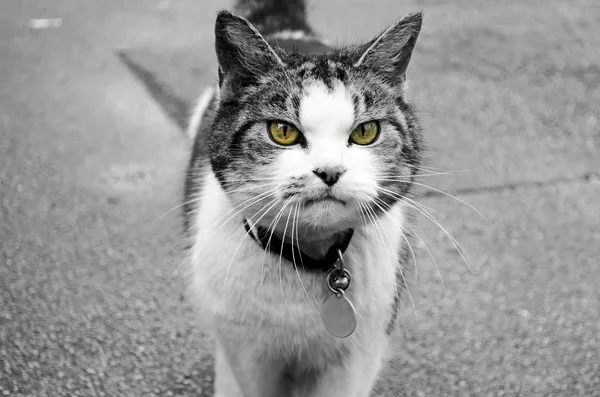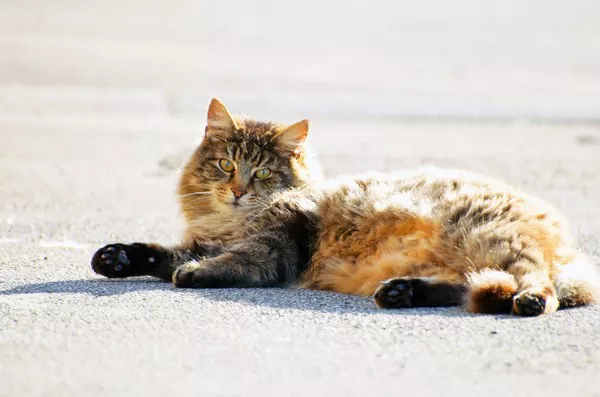As a cat owner, ensuring the health and well-being of your feline friend is a top priority. One of the many aspects of cat care involves nutrition, which plays a crucial role in maintaining a cat’s overall health. While most commercial cat foods are formulated to meet the nutritional needs of cats, some owners may wonder whether their pets require vitamin supplementation. This essay will explore when and why you might consider supplementing vitamins for your cat, the types of vitamins available, signs that your cat may need supplementation, and guidelines for safe and effective use.
Understanding Cat Nutrition
Nutritional Requirements of Cats
Cats are obligate carnivores, meaning their diet primarily consists of meat. Unlike omnivores, they have specific dietary needs that must be met to ensure optimal health. Key nutrients essential for cats include:
Proteins: Essential for growth, maintenance, and repair of tissues.
Fats: Provide energy and support cell structure.
Carbohydrates: While not essential, they can serve as an energy source.
Vitamins and Minerals: Necessary for various metabolic processes and overall health.
Commercial Cat Foods
Most commercial cat foods are designed to provide a balanced diet that meets the nutritional requirements of cats. These foods are often fortified with essential vitamins and minerals, making them adequate for most healthy cats. However, the quality of cat food can vary significantly between brands and formulations, leading some owners to question whether their cats are receiving all the necessary nutrients.
The Role of Vitamins
Vitamins are organic compounds that play critical roles in various physiological functions. They help with:
Immune Function: Vitamins like A, C, and E support the immune system.
Vision: Vitamin A is crucial for maintaining good vision and eye health.
Bone Health: Vitamins D and K are important for calcium metabolism and bone health.
Metabolism: B vitamins are involved in energy production and metabolism.
When to Consider Vitamin Supplementation
Dietary Deficiencies
While most commercial cat foods provide adequate nutrition, there are instances where dietary deficiencies may occur:
Homemade Diets: If you prepare homemade meals for your cat, it can be challenging to ensure that all nutritional requirements are met. Homemade diets often lack certain vitamins and minerals unless carefully formulated.
Low-Quality Commercial Foods: Some lower-quality commercial cat foods may not provide complete nutrition, leading to potential deficiencies over time.
Special Dietary Needs: Cats with specific health conditions or those on restricted diets may require additional vitamins to meet their nutritional needs.
Age and Life Stage
Different life stages can influence a cat’s nutritional needs:
Kittens: Growing kittens have higher nutritional requirements, including increased need for certain vitamins and minerals for proper development.
Pregnant and Nursing Cats: Pregnant and lactating cats also have increased nutritional needs to support their health and the health of their kittens.
Senior Cats: Older cats may require different nutrients to support aging bodies, including vitamins that promote joint health and cognitive function.
Health Conditions
Certain health conditions may necessitate vitamin supplementation:
Chronic Illnesses: Cats with chronic conditions such as kidney disease, diabetes, or hyperthyroidism may benefit from specific vitamin supplementation to support their health.
Recovery from Illness: Cats recovering from surgery or illness may need additional vitamins to aid in healing and recovery.
Poor Appetite: Cats that are not eating well may require supplements to ensure they receive essential nutrients.
Signs of Vitamin Deficiency
Recognizing the signs of vitamin deficiency can help determine if your cat needs supplementation. Common signs to watch for include:
Poor Coat Condition: Dull, dry, or flaky skin and fur can indicate a lack of essential fatty acids or vitamins.
Weight Loss or Poor Growth: Kittens that are not growing properly or adult cats that are losing weight may have nutritional deficiencies.
Weakness or Lethargy: A lack of energy or enthusiasm for play can be a sign of underlying health issues, including nutritional deficiencies.
Behavioral Changes: Changes in behavior, such as increased irritability or withdrawal, can also indicate health issues related to nutrition.
Types of Vitamins for Cats
Water-Soluble Vitamins
Water-soluble vitamins include the B-complex vitamins and vitamin C. These vitamins are not stored in the body and need to be consumed regularly:
B Vitamins: Important for energy metabolism, nerve function, and red blood cell formation. Common B vitamins include B1 (thiamine), B2 (riboflavin), B3 (niacin), B6 (pyridoxine), B12 (cobalamin), and folic acid.
Vitamin C: While cats can synthesize vitamin C, supplementation may be beneficial in certain health conditions.
Fat-Soluble Vitamins
Fat-soluble vitamins include vitamins A, D, E, and K. These vitamins can be stored in the liver and fatty tissues:
Vitamin A: Essential for vision, immune function, and skin health. Cats cannot convert beta-carotene from plants into vitamin A, so they must obtain it from animal sources.
Vitamin D: Important for calcium metabolism and bone health. Cats obtain vitamin D from exposure to sunlight and dietary sources.
Vitamin E: An antioxidant that helps protect cells from damage and supports immune function.
Vitamin K: Plays a role in blood clotting and bone health.
Guidelines for Supplementing Vitamins
Consult Your Veterinarian
Before starting any vitamin supplementation, it is crucial to consult with your veterinarian. They can assess your cat’s overall health, dietary habits, and specific needs to determine if supplementation is necessary.
Choose High-Quality Supplements
If supplementation is recommended, opt for high-quality products specifically formulated for cats. Avoid human vitamins, as they may contain ingredients that are toxic to cats or may not be appropriately dosed for their needs.
Follow Dosage Guidelines
Adhere to the recommended dosage guidelines provided by your veterinarian or on the supplement packaging. Over-supplementation can lead to toxicity and adverse health effects, particularly with fat-soluble vitamins.
Monitor Your Cat’s Response
After starting vitamin supplementation, monitor your cat for any changes in behavior, coat condition, energy levels, or overall health. Regular follow-up visits with your veterinarian can help ensure that your cat is responding well to the supplementation.
The Risks of Over-Supplementation
Toxicity
Certain vitamins can be toxic in high doses, particularly fat-soluble vitamins. For example:
Vitamin A: Excessive vitamin A can lead to hypervitaminosis A, resulting in symptoms such as lethargy, vomiting, and bone abnormalities.
Vitamin D: Over-supplementation can cause hypercalcemia, leading to kidney damage and other serious health issues.
Vitamin E: While generally considered safe, excessive vitamin E can interfere with blood clotting.
Imbalance of Nutrients
Over-supplementation of one vitamin can lead to imbalances with other nutrients. For example, excessive calcium can interfere with the absorption of other minerals, leading to deficiencies.
Behavioral Changes
In some cases, over-supplementation can lead to behavioral changes, such as increased irritability or lethargy.
Conclusion
Supplementing vitamins for your cat can be beneficial in certain circumstances, particularly when addressing dietary deficiencies, age-related needs, or health conditions. However, it is essential to approach supplementation with caution, as over-supplementation can lead to serious health issues.
Before introducing any supplements into your cat’s diet, always consult with your veterinarian to ensure that they are necessary and safe. By understanding your cat’s nutritional needs and monitoring their health, you can provide the best care possible, ensuring a long, healthy, and happy life for your feline companion.
Related topic:

























